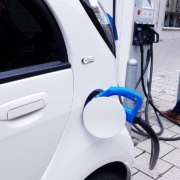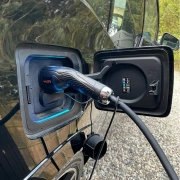How can EVs help you extend the life of your EV fleet?
Electric vehicles (EVs) have become incredibly popular among businesses and individuals alike in recent years due to their zero-emission nature, which reduces air pollution and greenhouse gas emissions significantly while contributing significantly to environmental protection.
Second, EVs have drawn widespread consumer interest due to their relatively low energy costs, stable pricing of electricity, and reduced maintenance expenses. Electric vehicle companies are rapidly increasing the number of EVs they include in their fleets.
In this paper, we investigate the vital role electric vehicles play in prolonging fleet lifespans.
1. Reducing Maintenance Costs and Operating Expenses
Electric vehicles provide significant cost-cutting advantages over their traditional fuel counterparts in terms of fleet maintenance costs. Traditional fleets consist of two cars equipped with internal combustion engines that contain complex systems with various moving parts that are susceptible to wear and tear. By contrast, electric vehicles feature simpler designs with fewer parts susceptible to mechanical failure, making maintenance costs for EV fleets significantly lower than for traditional fleets.
EV fleet charging solutions help fleets reduce operating costs by taking advantage of intelligent charging management systems to optimize energy expenses and charge at cheaper times of the day. Furthermore, government incentives offer discounts that further lessen operational burdens.
2. Integration Into Fleets
Integrating electric vehicles into your fleet reduces maintenance costs and optimizes operating expenses, with commercial EV chargers specifically designed to optimize fleet operations being essential to reaching this goal. Level 3 DC fast chargers and Level 2 commercial EV chargers specifically tailored for fleet use ensure efficient charging while minimizing fleet downtime, providing fast charging, and improving operational management of operating EVs longer through reliable fast charging infrastructures.
3. Scalability and Software Updates.
Scalability and software updates provide essential support for the longevity of an EV fleet. Fleet managers can adapt to changing technologies by upgrading key components or systems over their vehicles’ lifespan. For instance, advances in battery technology may increase range by replacing specific battery modules instead of having to buy an entirely new car.
Software updates provide fleets with an essential means to improve performance and efficiency while mitigating potential issues by remotely upgrading a vehicle’s drive control system, charge management system, or other relevant system. Real-time updates ensure fleet vehicles remain in top condition over their entire life spans, extending the life span of an electric fleet.
4. Increased electric motor life span.
Electric motors in electric vehicles last long thanks to their mechanical simplicity and advanced construction features. Compared with traditional internal combustion engines, electric motors typically only contain two moving parts: rotor and fixed stator, eliminating complex combustion processes as well as multiple moving parts that need managing.
Electric motors lack internal combustion components and thus produce less vibration and high operating temperatures, thus decreasing vibrational noise levels and risking component wear. Furthermore, motor rotors in electric vehicles tend to have few moving parts that increase wear risk, further decreasing mechanical wear risk. Due to these attributes, electric vehicles tend to be more cost-efficient while needing less maintenance, thus prolonging their service lives.
5. Conclusion.
Electric vehicles play a pivotal role in prolonging fleet lifespans, offering reduced maintenance costs due to their simplified mechanical structure and government incentives for charging solutions that lower energy consumption through intelligent management systems and ease operational burdens. Furthermore, charging facilities tailored specifically for electric fleets optimize charging efficiency, minimize downtime, and optimize operating costs, offering substantial long-term cost benefits.
Overall, EV fleet charging solutions provide fleets with cost-effective charging and operations management through multi-faceted optimization. This makes your EV fleet’s operations more financially sustainable over its lifecycle.







Leave a Reply
Want to join the discussion?Feel free to contribute!